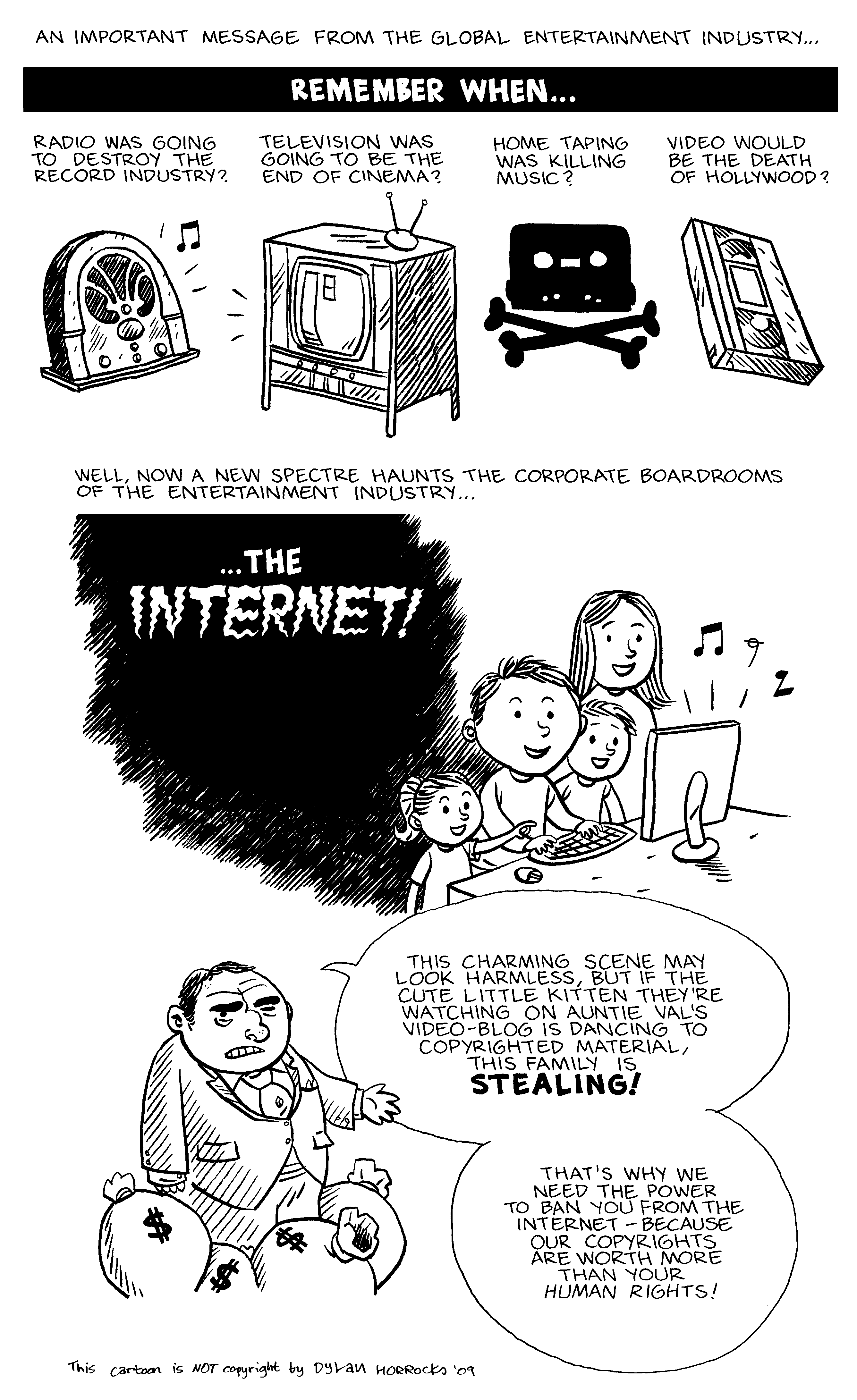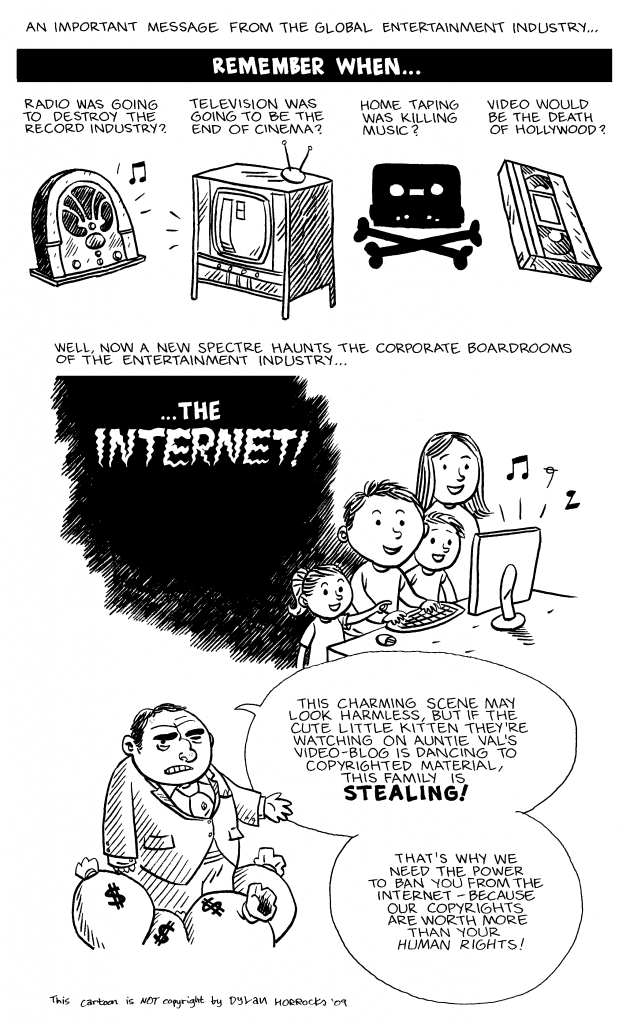Coercion and control

Approaching internet piracy without a heavy hand
Article: Liam Fitz-Gerald – Contributor
[dropcaps round=”no”]L[/dropcaps]ast September, the BBC ran a story that cited statistics regarding online piracy in the United Kingdom. A study by Ofcom- an independent British communications industry watchdog- examined 21,475 Internet users and found that movies, music, TV shows and computer software tended to be the most heavily pirated items. The study found that only 25% of online pirates would be deterred by the threat of lawsuit and only 20% would take a warning to desist such activity from their internet service provider (ISP) seriously.
In response to illegal downloading, British parliament has introduced new law enforcement measures in its Intellectual Property Bill. Initiated in August 2013, the bill seeks to modernize intellectual property laws. To deal with Internet piracy, tougher measures have been suggested by British parliament with some MPs voicing support for prison terms of a maximum of ten years for violation of the bill. Another measure of the bill include holding ISPs and search engines responsible for illegal downloads on certain websites if it was shown providers knew of criminal activity. Mike Weatherley, a former Motion Picture Licensing Company executive and Conservative MP, went as far as to say that such lawbreakers may lose Internet privileges. It should be important to note that Weatherley is not distinguishing between individuals who are running pirate websites and file sharing and people who may download occasionally but persistently.
There are two major issues with this legislation, one being that the punishment does not fit the crime for both cases. There is a difference between somebody who occasionally downloads a song/game/movie, and someone who pirates massive amounts of music/software/etc, and pawns it off via file sharing. Is it reasonable to lock up someone for up for downloading the occasional Rihanna song here and the occasional The Butler there? A quarter and a fifth of those surveyed in the aforementioned studies have said that sanctions won’t deter them anyway. A British telecom regulator statement from September 2013 has indicated that people who pirate actually do spend a great deal on legal purchases, and furthermore, music piracy has actually declined overall in Britain (from 301 million pirating in 2012 to 199 million in 2013). Such legislation has the possibility of making criminals out of people who shouldn’t be labelled as criminals.
Second, making search engines and ISPs criminally responsible for such websites could have an unintended consequence of censuring the Internet. ISPs may pre-emptively shut down certain websites in an attempt to avoid criminal sanctions, while search engines phase out certain terms. The unintended consequence is that some may find themselves silenced by such policies making information hard to distribute.
When dealing with issues of internet piracy we don’t need “sledgehammers to crush peanuts” rather we need reasonable, well thought out policies that gets music/information to those who want it, while compensating those who create it.
[button style=”e.g. solid, border” size=”e.g. small, medium, big” link=”” target=””]Image: Dylan Horrocks[/button]










